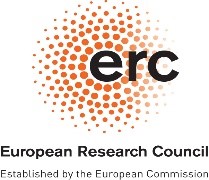Received:
2019-04-18 | Accepted:
2019-06-10 | Published:
2019-06-30
Title
Transition from the industrial clusters to the smart specialization: a case study
Abstract
Kazakhstan faced the problem of falling industrial production and decrease in efficiency of former managerial methods of territorial development. Transition to the new Smart Specialization approach provides better understanding of the specifics of the region and provides the highest return on investment in innovation. The authors produce rationale for the selection of regions of Kazakhstan to determine their smart specialization. There were determined the regions, in which it is advisable to develop the general purpose technologies, and the territories, where it is more profitable to focus on applied research and transmitting them into practice in relation to existing products and technological processes.
Keywords
industrial policy, smart specialization, innovations, development of industrial regions, Kazakhstan
JEL classifications
O15
, O50
, O53
, P40
, P47
URI
http://jssidoi.org/ird/article/9
DOI
HAL
Pages
118-128
Funding
The study was supported by the Russian Foundation for Basic Research (RFBR), project 16-07-01062
This is an open access issue and all published articles are licensed under a
Creative Commons Attribution 4.0 International License
References
Antonelli, G., & Cappiello, G. 2016. Smart development in smart communities. Smart Development in Smart Communities (pp. 1–324). Taylor and Francis Inc. https://doi.org/10.4324/9781315641850
Search via ReFindit
Bussolo, Maurizio, Dávalos, M. E., Peragine, V., Sundaram, R. 2019. Toward a New Social Contract: Taking On Distributional Tensions in Europe and Central Asia. Europe and Central Asia Studies. Washington, DC: World Bank. https://doi.org/10.1596/978-1-4648-1353-5
Search via ReFindit
De Melo, F., Maslennikov, V.V., Popova, E.V., Bezrukova, T.L., Kyksova, I.V. 2015. Quantitative analysis in economics based on wavelet transform: A new approach, Asian Social Science 11(20): 165–169.
Search via ReFindit
Dobbs, R., Smit, S., Remes, J., Manyika, J., Roxburgh, Ch., Restrepo, A. Urban world: Mapping the economic power of cities. Report. Mckinsey Global Institute. https://www.mckinsey.com/featured-insights/urbanization/urban-world-mapping-the-economic-power-of-cities
Search via ReFindit
Foray, D., Goddard, J., Beldarrain, X. G., Landabaso, M., McCann, P., Morgan, K., … Ortega-Argilés, R. (2012). Guide to Research and Innovation Strategies for Smart Specialization (RIS3). European Commission, (March 2012), 114. https://doi.org/10.2776/65746
Search via ReFindit
Goridko, N.P., Nizhegorodtsev, R.M. 2018. The growth points of regional economy and regression estimation for branch investment multipliers, Economy of Region 14(1): 29 – 42.
Search via ReFindit
Ignatavičius, R.; Tvaronavičienė, M.; Piccinetti, L. 2015. Sustainable development through technology transfer networks: case of Lithuania, Journal of Security and Sustainability Issues 4(3): 261-267. https://doi.org/10.9770/jssi.2015.4.3(6)
Search via ReFindit
Kantemirova, M. A.; Dzakoev, Z. L.; Alikova, Z. R.; Chedgemov, S. R.; Soskieva, Z. V. 2018. Percolation approach to simulation of a sustainable network economy structure, Entrepreneurship and Sustainability Issues 5(3): 502-513. https://doi.org/10.9770/jesi.2018.5.3(7)
Search via ReFindit
Kapitonov, I.A., Taspenova, G.A., Meshkov, V.R., Shulus, A.A. 2017. Integration of small and middle-sized enterprises into large energy corporations as a factor of business sustainability, International Journal of Energy Economics and Policy 7(2): 44-52.
Search via ReFindit
Kazakhstan - Low oil prices; an opportunity to reform. Kazakhstan Economic Update Spring 2015. World Bank Group. http://documents.worldbank.org/curated/en/766781468182065283/pdf/96195-WP-PUBLIC-Box391443B-KAZ-Kazakhstan-economic-update-series-Bi-annual-Economic-Update-Spring-2015-Low-Oil-Prices-an-Opportunity-to-Reform-eng.pdf
Search via ReFindit
Laura de Dominics, “Smart Specialisation and regional opportunities” 2nd Annual Conference INTERREG IVC Mini-Programme “Brain Flow” OECD Synthesis Report on Innovation Driven-Growth in Regions: the Role of Smart Specialisation (2013) EC Guide to Research and Innovation Strategies for Smart Specialisation (2012)
Search via ReFindit
Lavrinenko, O., Ignatjeva, S., Ohotina, A., Rybalkin, O., Lazdans, D. 2019. The Role of Green Economy in Sustainable Development (Case Study: The EU States), Entrepreneurship and Sustainability Issues 6(3): 1013-1026. https://doi.org/10.9770/jesi.2019.6.3(4)
Search via ReFindit
Mavlyanova, N., Denisov, I., Lipatov, V. 2015. Environmental problem analyses for cross-border territories of former Soviet Union countries. Environmental Protection and Sustainable Ecological Development - Proceedings of the Environmental Protection and Sustainable Ecological Development, EPSED 2014
Search via ReFindit
Mingaleva, Z.; Sheresheva, M.; Oborin, M.; Gvarliani, T. 2017. Networking of small cities to gain sustainability, Entrepreneurship and Sustainability Issues 5(1): 140-156. https://doi.org/10.9770/jesi.2017.5.1(12)
Search via ReFindit
Prause, G., Tuisk, T., Olaniyi, E.O. 2019. Between Sustainability, Social Cohesion and Security. Regional Development in North-Eastern Estonia, Entrepreneurship and Sustainability Issues 6(3): 1135-1154. https://doi.org/10.9770/jesi.2019.6.3(13)
Search via ReFindit
Romão, J., & Neuts, B. 2017. Territorial capital, smart tourism specialization and sustainable regional development: Experiences from Europe. Habitat International, 68, 64–74. https://doi.org/10.1016/j.habitatint.2017.04.006
Search via ReFindit
The Committee on statistics of the Republic of Kazakhstan. http://www.stat.gov.kz/
Search via ReFindit
Tvaronavičienė, M.; Razminienė, K.; Piccinetti, L. 2015. Cluster efficiency study through benchmarking, Entrepreneurship and Sustainability Issues 3(2): 120-128. https://doi.org/10.9770/jesi.2015.3.2(0)
Search via ReFindit
Vukovic, D.B., Radulovic, D., Markovic, M., Kochetkov, D.M., Vlasova, N.Y. 2017. Development of a financial framework for the national plan for regional development: The evidence from Serbia. Economy of Region 13(4): 1314 – 1328
Search via ReFindit
Žižka, M., Hovorková Valentová, V., Pelloneová, N., Štichhauerová, E. 2018. The effect of clusters on the innovation performance of enterprises: traditional vs new industries, Entrepreneurship and Sustainability Issues 5(4): 780-794. https://doi.org/10.9770/jesi.2018.5.4(6)
Search via ReFindit












 RSS 1.0
RSS 1.0